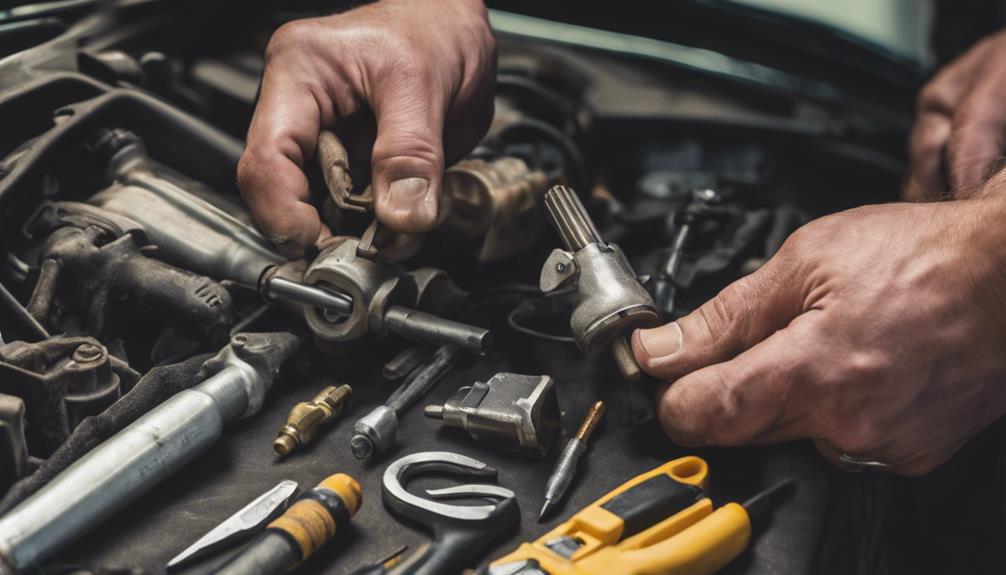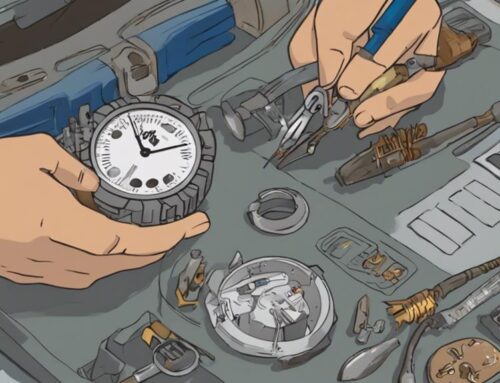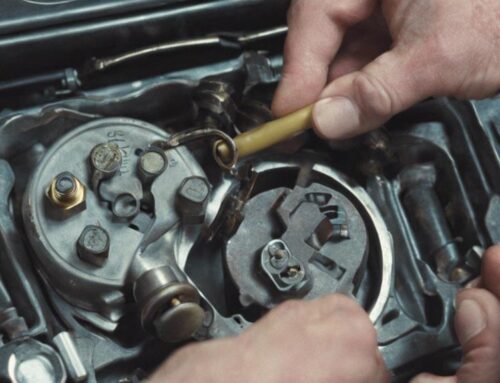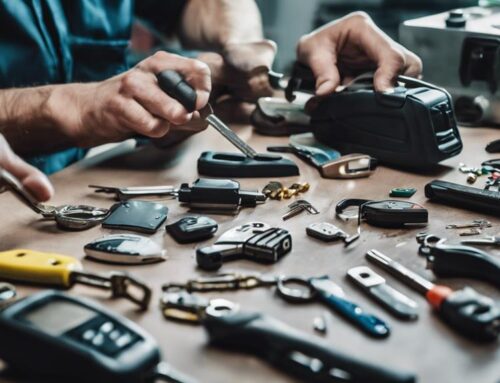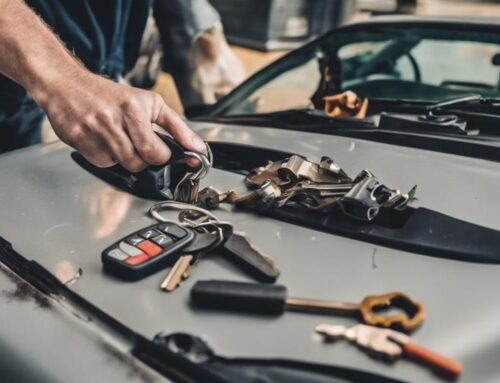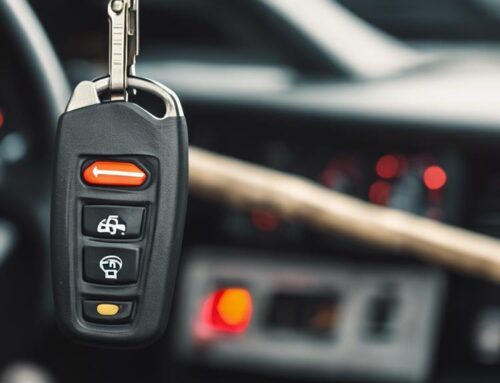You might notice your key isn't turning smoothly, or maybe it's jamming frequently, leaving you wondering if it's time for a repair, rekeying, or a full replacement of your ignition cylinder. These signs can be subtle but essential in determining the right course of action. Understanding the difference between these options can save you both time and money. But how do you know when to act? There are specific indicators and steps you can take to assess the situation before making any costly decisions. Let's explore what you should look out for.
Key Takeaways
- Difficulty turning the key or it getting stuck often indicates internal wear and may necessitate repair or replacement.
- Unusual noises during key operation can signal underlying issues, suggesting the need for professional assessment.
- Frequent key jamming may indicate significant wear, prompting consideration for rekeying or replacement.
- Regular maintenance checks can help identify potential ignition problems early, preventing costly repairs later on.
- A professional diagnosis is crucial to determine the best course of action, whether repair, rekeying, or replacement.
Signs of Ignition Cylinder Issues
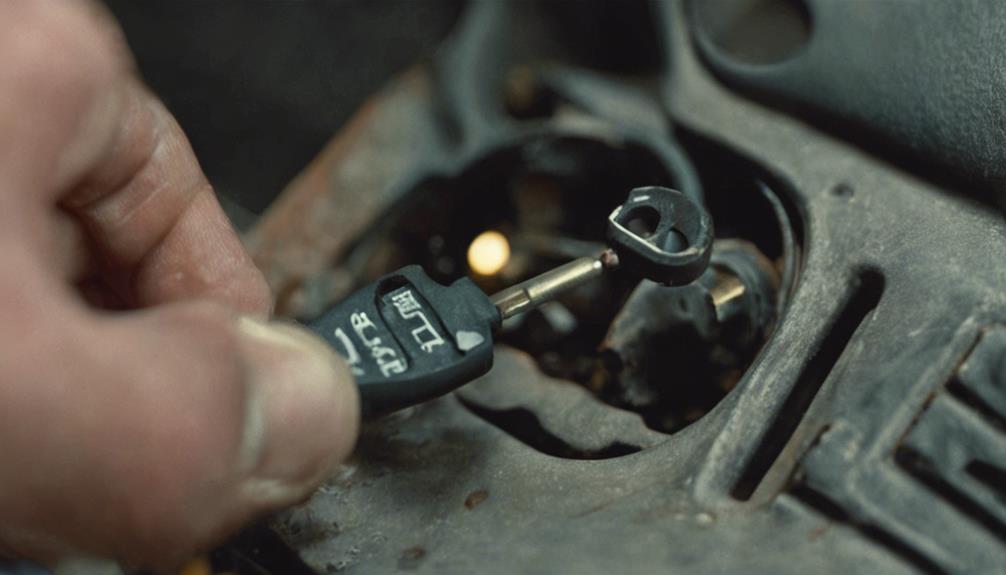
Recognizing the signs of ignition cylinder issues is essential for maintaining your vehicle's reliability. You should be aware of specific ignition symptoms that indicate potential problems. If you notice difficulty turning the key or if it feels unusually loose, this could signal wear. Additionally, if your vehicle intermittently fails to start or you experience electrical malfunctions, it's time to investigate further. Unusual noises when inserting the key or a key that won't turn at all are also critical warning signs. Regular cylinder maintenance can prevent more severe issues down the road. By staying vigilant about these symptoms and understanding Ignition Switch Repair and Replacement Costs, you can guarantee your ignition system operates smoothly and efficiently, keeping your vehicle at peak performance.
Understanding Repair vs. Rekeying
When you're facing ignition cylinder issues, it's essential to understand whether you need a repair or rekeying. Recognizing signs of ignition failure can help you make an informed decision, while rekeying offers specific benefits, such as enhanced security without the need for full replacement. Let's explore these options to determine the best course of action for your situation.
Signs of Ignition Failure
How can you tell if your ignition cylinder is failing? Key indicators include difficulty turning the key, unusual noises when starting, or the key getting stuck. These symptoms signal the need for ignition troubleshooting and prompt cylinder maintenance.
| Symptoms | Potential Causes | Recommended Action |
|---|---|---|
| Key won't turn | Worn-out cylinder | Consider repair |
| Grinding noises | Misaligned components | Inspect and adjust |
| Key gets stuck | Debris in the cylinder | Clean or rekey |
| Intermittent starts | Electrical issues | Check wiring |
Recognizing these signs early can save you from complete ignition failure. Address issues before they escalate, ensuring your vehicle's reliability and performance.
Benefits of Rekeying
Rekeying your ignition cylinder can be a smart choice for enhancing security and extending the life of your vehicle's lock system. This process involves changing the internal pins of the cylinder, allowing a new key to operate it while rendering old keys useless. One significant advantage is cost savings; rekeying is often less expensive than a full ignition cylinder replacement. Additionally, it provides a security enhancement, especially if you've lost your keys or suspect unauthorized access. By opting for rekeying, you maintain the integrity of your ignition system without the hassle of replacement, ensuring your vehicle remains secure and operational. Fundamentally, rekeying combines efficiency with effectiveness, empowering you with control over your vehicle's security.
When to Consider Replacement
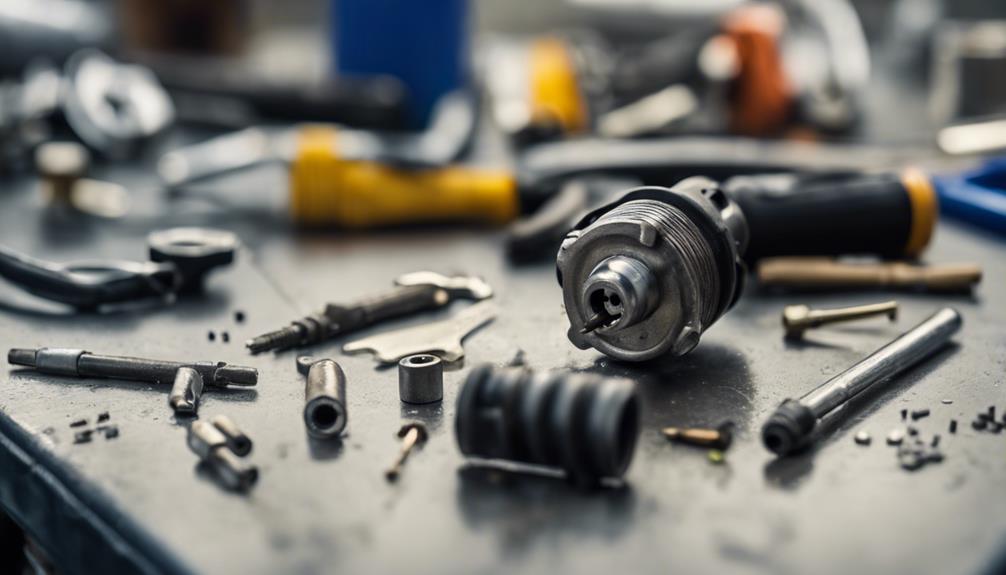
If you're experiencing signs of ignition failure, like difficulty starting your vehicle or unusual noises, it might be time to contemplate replacement. Key jamming or difficulty turning the ignition can also indicate that the cylinder is worn out. Additionally, if your ignition cylinder is old and shows significant wear, replacing it could save you from further issues down the line. Locksmiths have the expertise to assess the condition of your ignition cylinder and recommend the best course of action to guarantee your vehicle's security and functionality.
Signs of Ignition Failure
An ignition cylinder can exhibit several signs indicating it may need replacement. If you notice ignition symptoms such as difficulty turning the key, the engine not starting, or intermittent electrical issues, it's time to take action. These problems can escalate quickly, making troubleshooting essential.
| Sign of Failure | Possible Cause | Action Required |
|---|---|---|
| Key won't turn | Worn ignition cylinder | Consider replacement |
| Engine won't start | Electrical failure | Diagnose thoroughly |
| Dashboard lights flicker | Faulty connections | Inspect wiring |
Recognizing these signs early can save you from more extensive repairs down the line. If you're experiencing any of these issues, consider consulting a professional for further evaluation and potential replacement.
Key Difficulties or Jamming
Experiencing key difficulties or jamming when attempting to start your vehicle can be frustrating and indicative of deeper issues within the ignition cylinder. If you notice your key isn't aligning properly or feels stuck, it's time to assess the situation. Misalignment can signal that the internal components of the cylinder are worn or damaged. Additionally, inadequate cylinder lubrication can lead to increased friction, causing the key to jam. If simple lubrication doesn't resolve the problem, consider that the ignition cylinder may need replacement. Don't ignore these signs; addressing them early can save you from more extensive repairs down the line. Trust your instincts—if the key struggles to turn, it's wise to act decisively for your vehicle's performance.
Understanding the Locksmith Process for Ignition Cylinder Repair
Age and Wear Factors
Over time, wear and tear can take a toll on your ignition cylinder, making it essential to recognize when replacement is necessary. The ignition lifespan typically ranges from 10 to 15 years, but several wear indicators can signal it's time to evaluate a replacement:
- Difficulty starting your vehicle: If turning the key feels increasingly resistant, it's a red flag. This can indicate that the internal components are worn out and may need maintenance or replacement.
- Frequent key jamming: If your key is getting stuck, this could indicate internal damage.
- Unusual noises: Grinding or clicking sounds may signify serious wear.
- Key wear: If your key shows significant wear, it can affect the ignition mechanism.
Don't ignore these signs; addressing them promptly can save you from more costly repairs down the line.
DIY Troubleshooting Steps
Identifying whether your ignition cylinder needs repair or replacement can save you time and money. Start with basic ignition troubleshooting tips from Troubleshooting Ignition Switch Failures: Causes and Solutions: check if your key turns smoothly. A stiff or stuck key often indicates internal wear. Next, listen for unusual sounds when turning the key; grinding or clicking can signify common ignition problems. Inspect the ignition cylinder for any visible damage, such as cracks or corrosion. If the cylinder feels loose or wobbly, it may need rekeying or replacement. Finally, test the electrical connections for corrosion or loose wiring, as these can hinder ignition performance. By systematically addressing these issues, you can effectively determine the necessary course of action for your ignition cylinder.
Professional Diagnosis Services
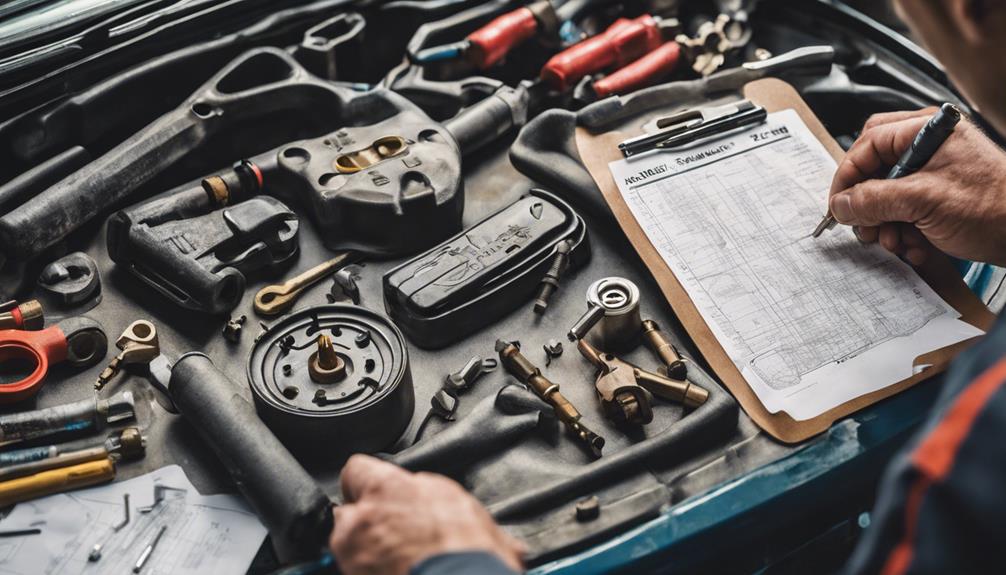
If your troubleshooting efforts haven't pinpointed the issue with your ignition cylinder, seeking professional diagnosis services is a smart step. Experienced technicians utilize advanced key technology to assess the problem accurately, ensuring your ignition security isn't compromised. Additionally, always-available locksmiths can provide immediate assistance for ignition issues, ensuring you get back on the road swiftly and safely.
Here are four reasons to evaluate professional help:
- Expert Analysis: Professionals can identify complex issues that DIY methods might miss.
- Advanced Tools: They use specialized equipment designed for detailed diagnostics.
- Time Efficiency: Quick and precise diagnosis saves you time and hassle.
- Long-term Solutions: Experts provide recommendations for repairs or replacements that enhance your ignition security.
Investing in professional diagnosis not only protects your vehicle but also empowers you with reliable insights into your ignition system's health.
Low Rate Locksmith Expertise
When you're facing ignition issues, choosing a low-rate locksmith can be a smart and cost-effective solution. These professionals often undergo rigorous locksmith training, giving them the skills to handle various ignition problems efficiently. They're equipped with advanced security technology, enabling them to diagnose issues accurately and quickly.

